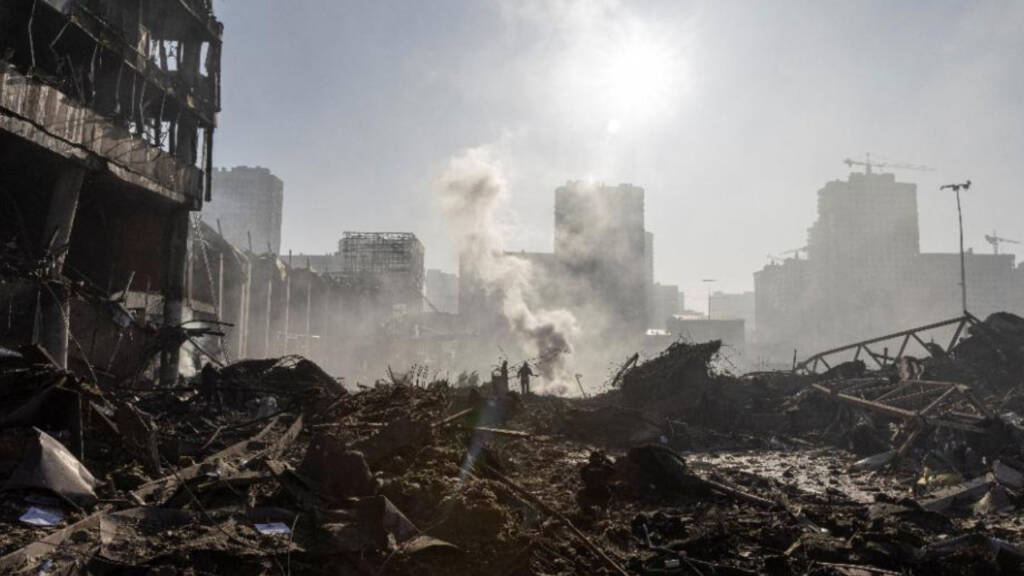The war between Russia and Ukraine has been central to recent history, changing the global geopolitical landscape and causing far-reaching consequences.
At the forefront of these changes are worrying frictions in NATO, renewed armaments, economic disarray, and a turn to conservatism, all filled with urgency and serious concern. This article examines these consequences to understand the post-war environment better.
The erosion of NATO solidarity
Perhaps one of the most troubling consequences of the war between Russia and Ukraine was the North Atlantic Treaty Organization (NATO) breakup. The 30-nation military alliance, once a model of Western unity against threats, has shown cracks in its facade.
Differences in response to Russian aggression and the subsequent humanitarian crisis in Ukraine exposed the breakdown of the alliance. The lack of a unified position only exacerbated tensions and raised questions about the future of the long-standing organization.
Longtime members such as Turkey and Hungary have been seen on the fence as their leaders tighten ties with Russia, at odds with public opinion of the alliance. Newer eastern countries such as Poland, Lithuania, and Estonia take a tougher line against Russia, perceiving a direct threat to their sovereignty. At the same time, traditionally dominant countries such as the United States, Germany, and France tried to balance deterrence and diplomacy.
The aftermath of the Russia-Ukraine war has seen France drifting away from the USA due to different approaches to the crisis and the fallout of the AUKUS pact, which led to Australia canceling a large submarine contract with France in Favor of the US. France’s disagreement with the US’s handling of the Russia-Ukraine conflict and the perceived betrayal from the AUKUS deal has caused significant strain on Franco-American relations.
The calls for reduced reliance on the US and stronger EU defence capabilities have gained traction amidst the shaken confidence in NATO following the Russia-Ukraine war.
France’s strategic shift is paving the way for the potential emergence of the EU as an independent security player, signaling a significant reshaping of global alliances.
The resurgence of racing gear
The world is witnessing a resurgence of the Cold War arms race. The war between Russia and Ukraine has increased tensions and prompted countries to increase their military capabilities. The most worrying aspect is the focus on nuclear weapons.
Already a nuclear power, Russia has hinted at a possible increase in its nuclear arsenal in response to perceived NATO aggression. Meanwhile, the United States accelerated a $1.2 trillion plan to modernize its nuclear arsenal. China has also expanded its nuclear arsenal at an unprecedented rate, raising concerns about global nuclear disarmament.
Global shift to conservatism
A shift to conservatism can also be noticed in the war worldwide. Political parties favoring strong nationalist and isolationist goals gained popularity. A common sentiment among these growing groups is a rejection of globalization and a return to traditional norms and values, often with an anti-immigration and anti-multicultural undertone.
A global shift towards conservatism is evident in the wake of the Russia-Ukraine war. This trend is highlighted by Italy’s election of its first female conservative leader in over 200 years. This historic event signifies Italy’s alignment with growing nationalism and isolationism worldwide.
Consequently, Italy may re-evaluate its domestic policies and role within the EU, adding a new layer to the complex geopolitical landscape following the Russia-Ukraine conflict.
Economic impact
The economic consequences of the war between Russia and Ukraine were turbulent. The sanctions imposed on Russia had serious global economic developments.
The economies of Western European countries, which are highly dependent on Russian energy supplies, have had significant impacts, leading to higher energy prices, inflation, and economic slowdown.
In addition, Russia, a major global supplier of raw materials such as steel, aluminum, and precious metals, is subject to sanctions. This economic turbulence is not limited to Russia but sends ripples through global commodity markets, driving up prices and exacerbating existing supply chain problems.
Simultaneously, the US nearly hit its debt ceiling due to increased defence spending, sanctions, and the general economic impact of the war. The global economic instability reflects the profound and enduring aftershocks of this conflict.
Alliances and Frauds
The conflict between Russia and Ukraine has also severely tested international alliances. Ambivalent responses from the allies, reluctance to intervene, or open support of some parties to Russia have raised questions about the reliability of global partnerships.
Frauds have been uncovered, such as Hungary’s decision to continue buying gas from Russia despite sanctions, suggesting a realignment of alliances in the new geopolitical landscape.
